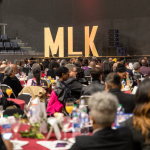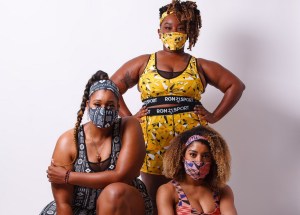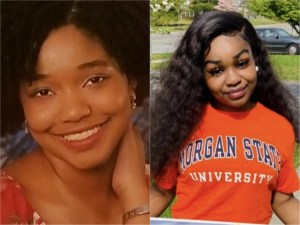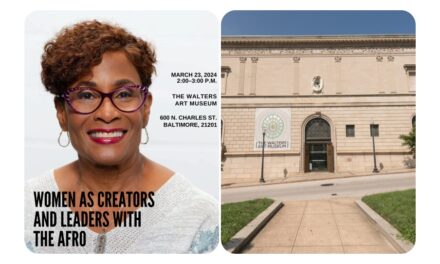By Nicole S. Daniel and Ryan Michaels
The Birmingham Times
Hundreds of Birmingham area leaders and residents gathered Monday in The Boutwell Auditorium for the 37th Annual Unity Breakfast in honor of Dr. Martin Luther King Jr.
Corey Minor Smith, an attorney, mental health advocate, and author, served as keynote speaker and was joined by former Mayor William Bell; Jefferson County Commissioners Lashunda Scales and Sheila Tyson; state Sen. Merika Coleman, D-Birmingham and State, Rep. Juandalynn Givan, among others.
Smith said racism is still widespread and “it’s not just a white person calling us the N word. It shows up when we are overcharged for inferior foods and super goods, it shows up when we are unjustly denied loans, it shows up when we are unnecessarily followed in the stores, it shows up when we suffer micro depression at work, it shows up when our kids are under attack in schools.”
It can also show up when teachers are “forcing our children in elementary school to reenact slavery, it shows up when we are the last one hired and the first one fired, it shows up when the police harass harm and hurt us,” said Smith. “Just think of it my friends it was not that long ago that we witnessed with our very eyes, the knee of someone that was to serve and protect here murdered George Floyd but the knee of the unjust system is still on the necks of our collective body.”
In 1963, during the heat of the Civil Rights Movement, King came to the city for the Birmingham Campaign, which showed the nonviolence of young Black protestors in the Jim Crow South which helped desegregate the city and led to national change.
Through the events of 1963, the Civil Rights Act of 1964 was passed, banning many of the forms of racial discrimination that proliferated in the South.
Sen. Coleman talked about perseverance and said three years ago she suffered some devastating losses. “I lost my husband in February 2020 and then shortly after that I lost five family members back-to-back to Covid. My experience in 2020 was a level of grief I had never experienced before in my life. I had decided that I had given up too much of my time and too much of my children’s time and I wasn’t going to run for my state house seat let alone the state senate.”
Coleman said she was reminded of important work she needed to finish including removing racist language from the Alabama constitution. She found strength in “the spirit of Dr. Martin Luther King,” she said.
“[In November of 2022] we removed that racist language in the Alabama State Constitution. It is no longer the 1901 Constitution it is now the Constitution of Alabama 2022. Martin Luther King Jr, said these words, ‘everybody can be great because anybody can serve.’”
Rep. Givan said the city has come a long way, but wondered with the city’s record number of homicides in 2022 whether that was the manifestation of Dr. King’s dream.
“We’re going to go through some things; it’s not going to be easy, but the dream still lives. There’s still manifestation of a dream and even through hard times we have to go get it and keep our faith … we have to remember we have to go through a period of discovery, dilemma, discussion, direction, doubt, determination that will lead to deliverance,” Givan said.
Commissioner Scales pointed to a speech King delivered just six months before he was assassinated where he asked “what is your life’s blueprint?”
“The question is whether you have a proper a solid and a sound blueprint,” said Scales, who suggested life’s blueprint should include a deep belief in your dignity and worth.
“Don’t allow anybody to make you feel like you are nobody. Always feel that you have worth and that your life has ultimate significance,” she said. “Secondly you must have as the basic principle, the determination to achieve excellence in your various fields of endeavors. As the years unfold what will you do with your life?” she asked. “Set out to do it and do it well. Set out to do it as if God almighty called you at this particular moment to do.”
Messages of Hope
Later in the day, Birmingham-area pastors said attempts to curtail the teaching of race in schools may hinder the memory of the Civil Rights Movement in Birmingham.
Harold Bass, pastor of Olivet Monumental Baptist Church, said King was a “trailblazer” and “trendsetter.”
“He set the trail for others to follow. Tied to him is much of our history. History is very important. We have learned that a history that is not taught is a history that shall be repeated,” Bass said.
Dr. Michael Wesley said he fears that recent national controversy surrounding the teaching of students across America about race may hinder the memory of the Civil Rights Movement in Birmingham.
“We have to be careful because while those [Civil Rights Movement] truths are known by many of us in this room who lived through those, I run with the fear that future generations won’t know anything about it,” Wesley said.
Others who spoke included SCLC President Rev. R.L. Patterson of Abyssinia Missionary Baptist Church; former SCLC President Calvin Woods of Shiloh Baptist Church and Pastor C. Allen Stewart of Divine Faith Missionary Baptist Church.
Woods pointed to work in Birmingham that predated King.
“We had been working in Civil Rights about nine years before Dr. King stepped [into the city.] We brought him to Birmingham in 1963, but we had been laboring. People had been killed. People had been jailed, but when that tomorrow came, God sent King up here with us. All of us have tomorrow,” Woods said.
Stewart spoke of the need for more Black people to vote.
“We need to get more African Americans to the polls–not just registered–but to the polls,” he said. “So here’s the challenge, when you go back to your various congregations, begin afresh. That’s our biggest target.”











